MEDICAL & DENTAL






BOARD-CERTIFIED FAMILY MEDICINE PHYSICIAN




Dr. Khatri provides a patient centric environment focused on families and their medical needs.
Specialty Outpatient Procedures
Joint injections
Immunizations
Incision and Drainage
Breathing Treatments
Lipoma/ Cyst Removals
Women’s Health Procedures
Intrauterine
Device Placements
Nexplanon Insertions
Pap Smears
Hormone Replacements
Same-Day Appointments
AT BRENTWOOD PRIMARY CARE
6600 Lone Tree Way Brentwood, CA 94513
Ph: (925) 240-2841
www.brentwoodprimarycare.com
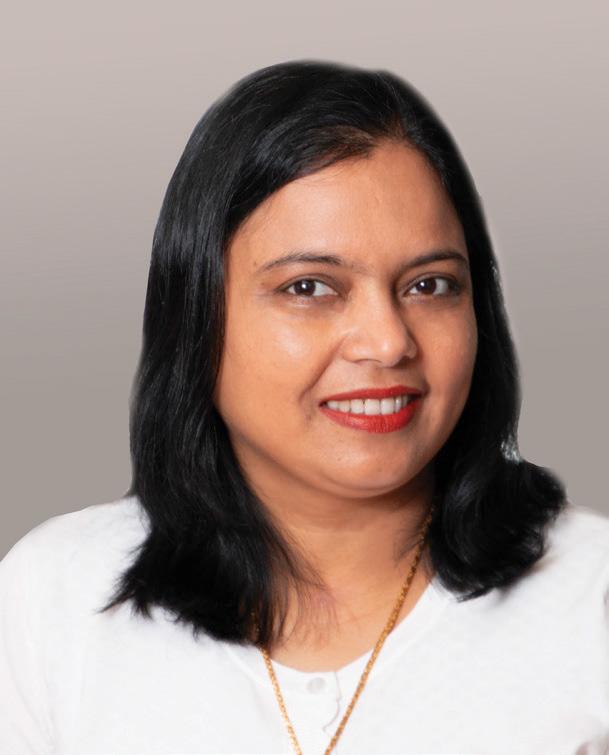
BOARD CERTIFIED PEDIATRICIAN






Dr. Vallamdas has built a thriving pediatric practice by building close relationships with the parents of her patients.
Services
Newborn Care
Wellcare Visits
for Ages 0-18
Vaccinations
Adolescent Care
Sick Visits
School/Sports
Camp Physicals
Suture/Staple Removals
Wart Cryotherapy
Ear Wax Removal
BASS FELICITY PEDIATRICS
2400 Balfour Rd. Ste 302
Brentwood, CA 94513
Ph: (925) 684-7443
www.felicitypediatrics.com


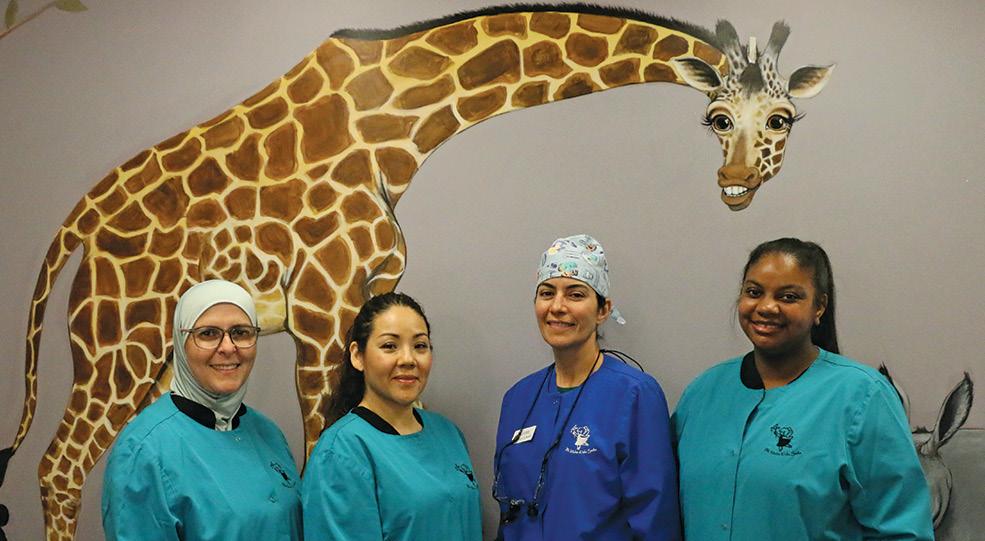 JEFF WEISINGER
JEFF WEISINGER
Dr. Leila Zokaei remembers an emergency case she had at about 10 p.m. on a Sunday – a young boy who had a tooth knocked out after his brother shoved an iPad at his mouth.
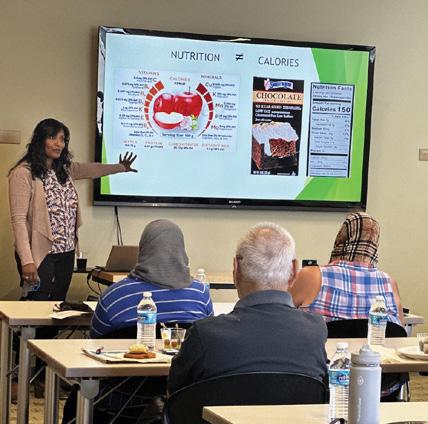

Nonetheless, even at that late hour on a weekend night, she took care of the boy.
Along with loving what she does and helping people, Zokaei said she just enjoys working with kids.
“It’s so fun working with them,” Zokaei said. “I always tell my husband that becoming a pediatric dentist is the best decision I’ve ever made.”
Zokaei has worked in pediatric dentistry for the last nine years, but for the last year she’s worked with Alameda Pediatric Dentistry in the John Muir Medical Center in Brentwood at 2400 Balfour Road Suite 309. She has worked with numerous children for their dental needs – from as basic as a routine cleaning to serious emergency cases, like when a boy shoves an iPad at his brother’s mouth.
Since 1971, Alameda Pediatric Dentistry has specialized in pediatric dentistry, along with orthodontics, infant oral care, and treating kids with special needs. They have four locations throughout the East Bay: Alameda, Oakland, Pleasanton, and in Brentwood. They see patients from infancy up to 21 years old.
Zokaei stresses the importance of bringing the children to the dentist office early in their lives.
“About 21 percent of American kids get cavities between the ages of two to five if they don’t see the dentist,” Zokaei said. “So I think it’s very important to have dental appointments to prevent cavities.”
Zokaei adds that poor oral care and cavities can affect children more than some may think.
“Cavities can grow worse and become infected,” she said. “It can affect their sleeping or their learning because they’re going to miss some school days due to the pain. If you have an infection in your mouth, it means you have an infection in your body.”

Zokaei added “if you need extraction (of a baby tooth) sooner than it’s supposed to fall out, it can cause problems with the eruption pattern of the permanent teeth.”
The team is trained to keep the patients calm, providing dark sunglasses so they won’t see the tools being used,
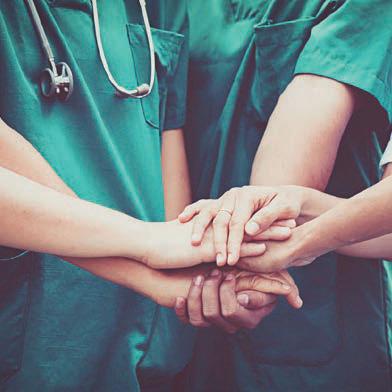
and there are TVs above the dental chair to keep them occupied while being seen.
As Alameda Pediatric Dentistry prepares to offer a complimentary first visit at their Brentwood office starting July 1 for babies up to 24 months, Zokaei also talked about the importance of infant oral care and getting children into good oral care habits as early as six months.


“The American Academy of Pediatric Dentistry (AAP) and the American Dental Association (ADA) say the first dental visit (should be) within the first six months of the first eruption of the primary tooth and no later than the first birthday of the child,” Zokaei said. “It’s very important because they can come into the office and feel more comfortable with us. We can help them and educate the parents on the teething, the oral habits, pacifiers, injuries, oral hygiene and nutrition.”
Zokaei says that the first teeth should start to come in at about six to seven months. Signs to look for are if they’re drooling a lot along with the common sign of pain and lack of sleep.
For more information or to schedule an appointment, call 510-521-5437 or visit http://alamedapediatricdentistry.com.

– Advertorial



The Centers for



Summer is a season to enjoy some fun in the sun, but East County residents must remember to take steps to reduce their risk for heat illness. Those measures should include efforts to hydrate and remain hydrated throughout the day.

The Centers for Disease Control and Prevention report that water will almost always help people remain hydrated even when they’re working in the heat.
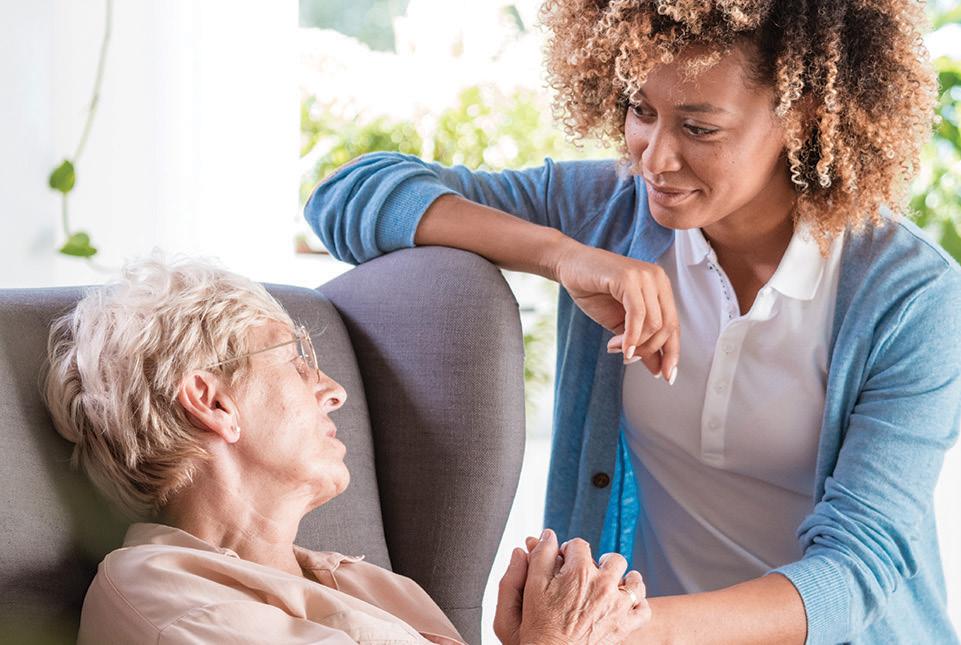
But food also plays a vital role in preventing heat illness, as the CDC notes eating regular meals can help to replace the salt lost through sweat. It’s also important that individuals avoid energy drinks and alcohol when spending time in the hot summer sun.
Many energy drinks contain more caffeine than standard servings of coffee, tea and soft drinks, and excessive caffeine consumption can contribute to dehydration.
The same can be said for alcohol, and the CDC reports that consuming alcohol within 24 hours of working in the heat can increase the risk of heat illness.
Disease Control and Prevention report that water will almost always help people remain hydrated even when they’re working inside or outside.
Visiting Angels allows your loved ones to live where they are the most comfortable—in their own home.

health – damage to your skin and skin cancer.

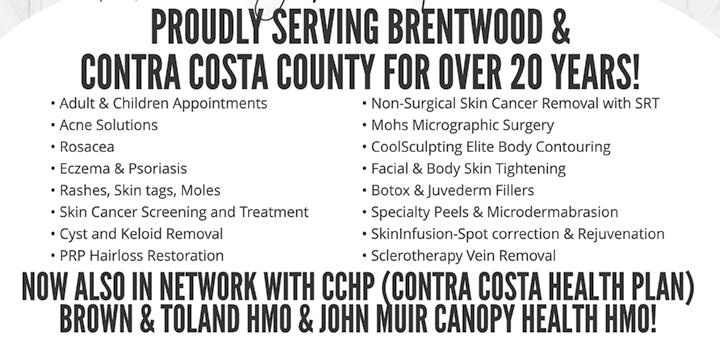



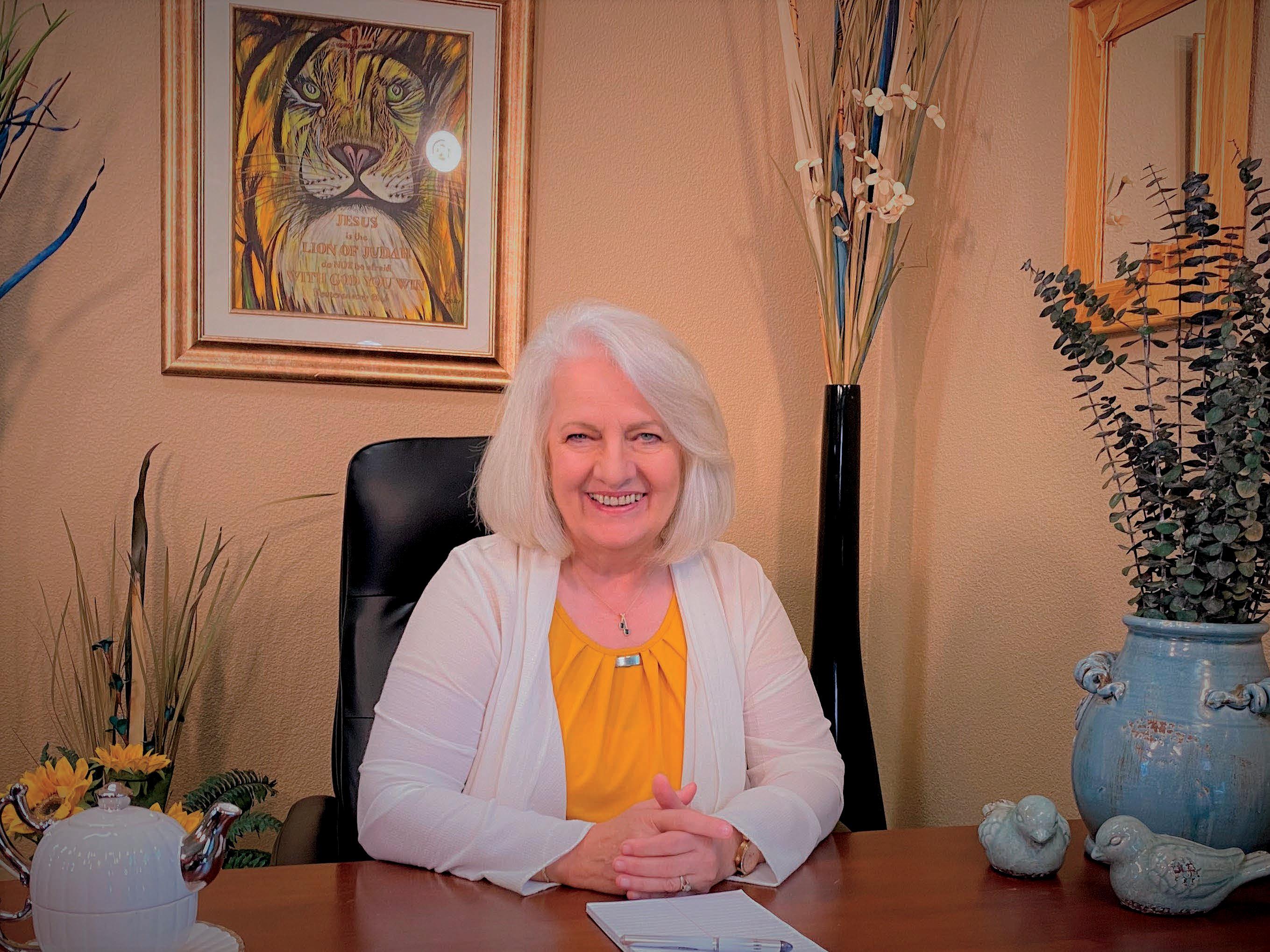
The arrival of summer often means warmer weather, barbecues, beach trips, camping and more time in the sun. But with that extra time in the sun comes a potential threat to a person’s
According to the American Academy of Dermatology, skin cancer is the most common form of cancer in the United States, and that 1 in 5 Americans will develop skin cancer in their lifetime, with



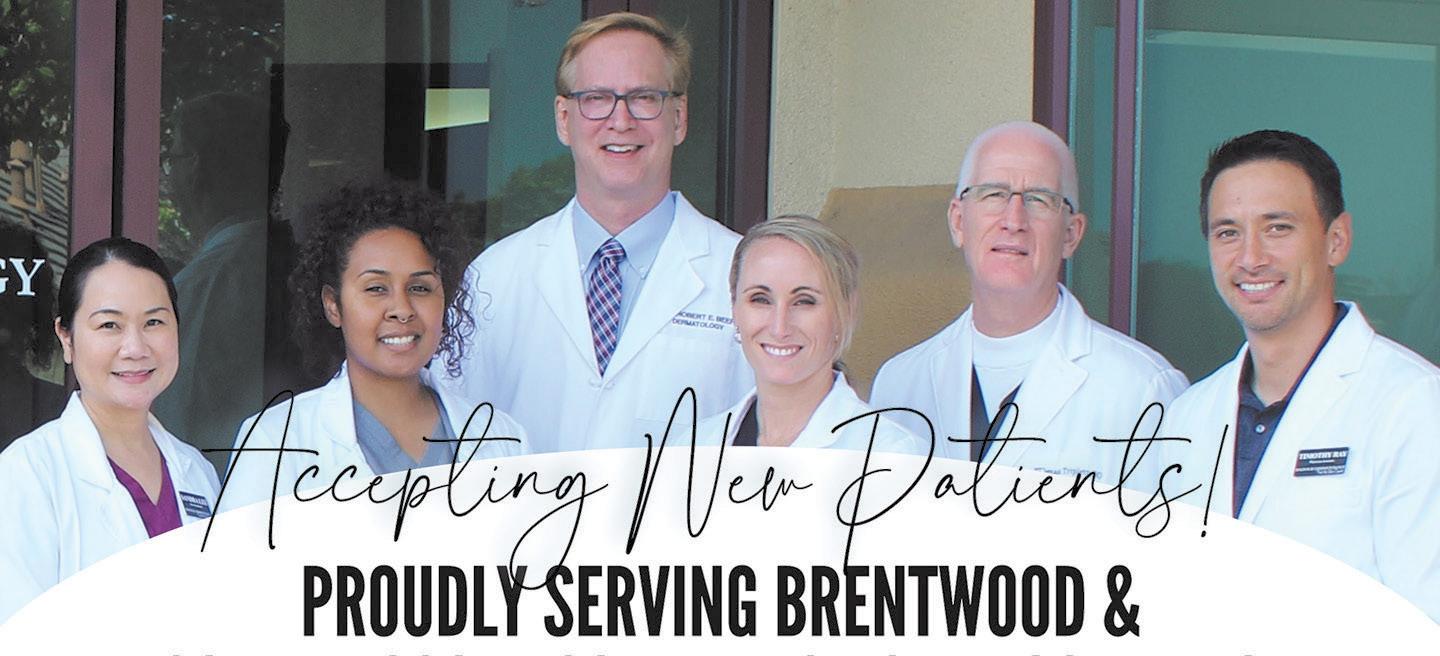

see Skin Cancer page 6B
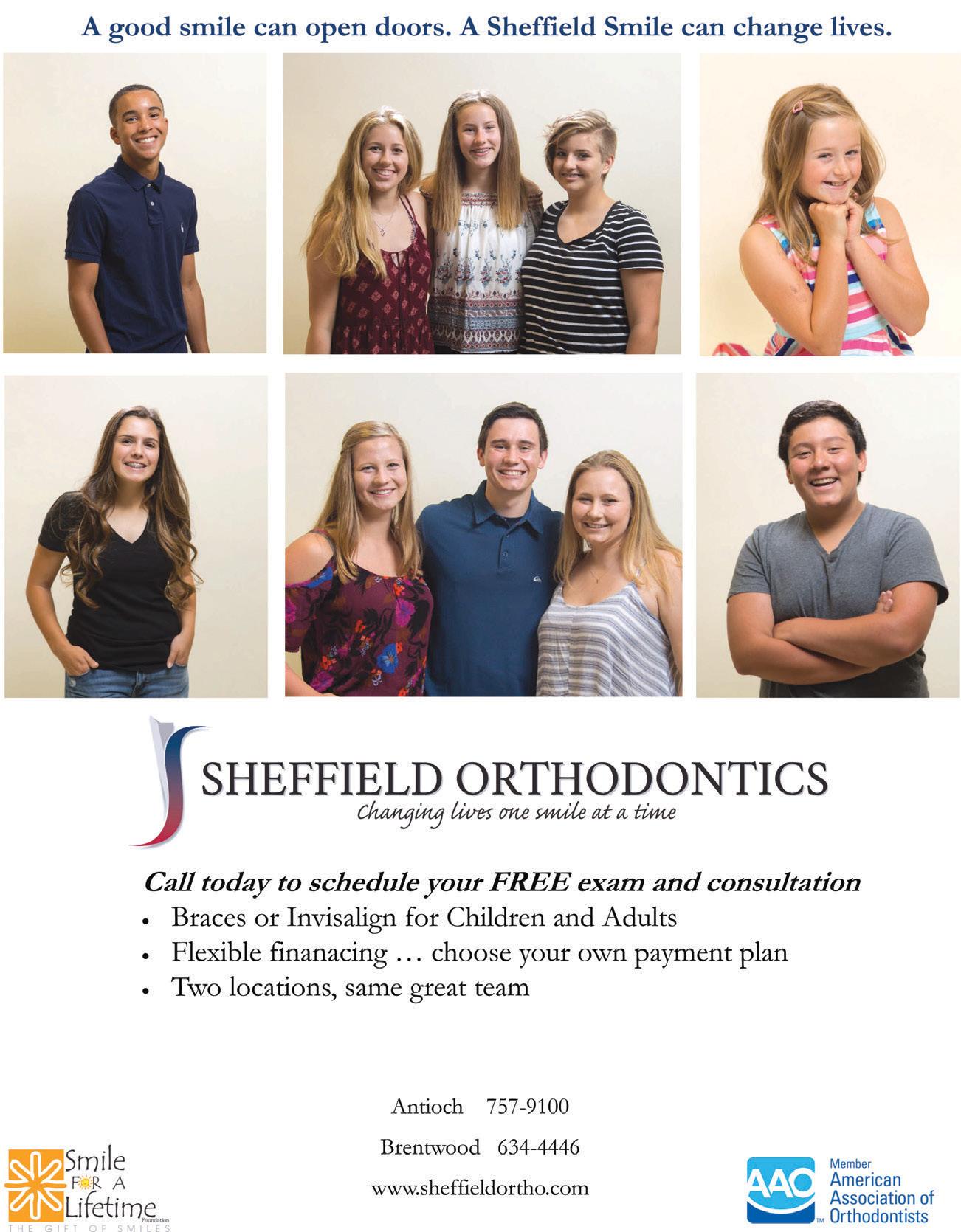
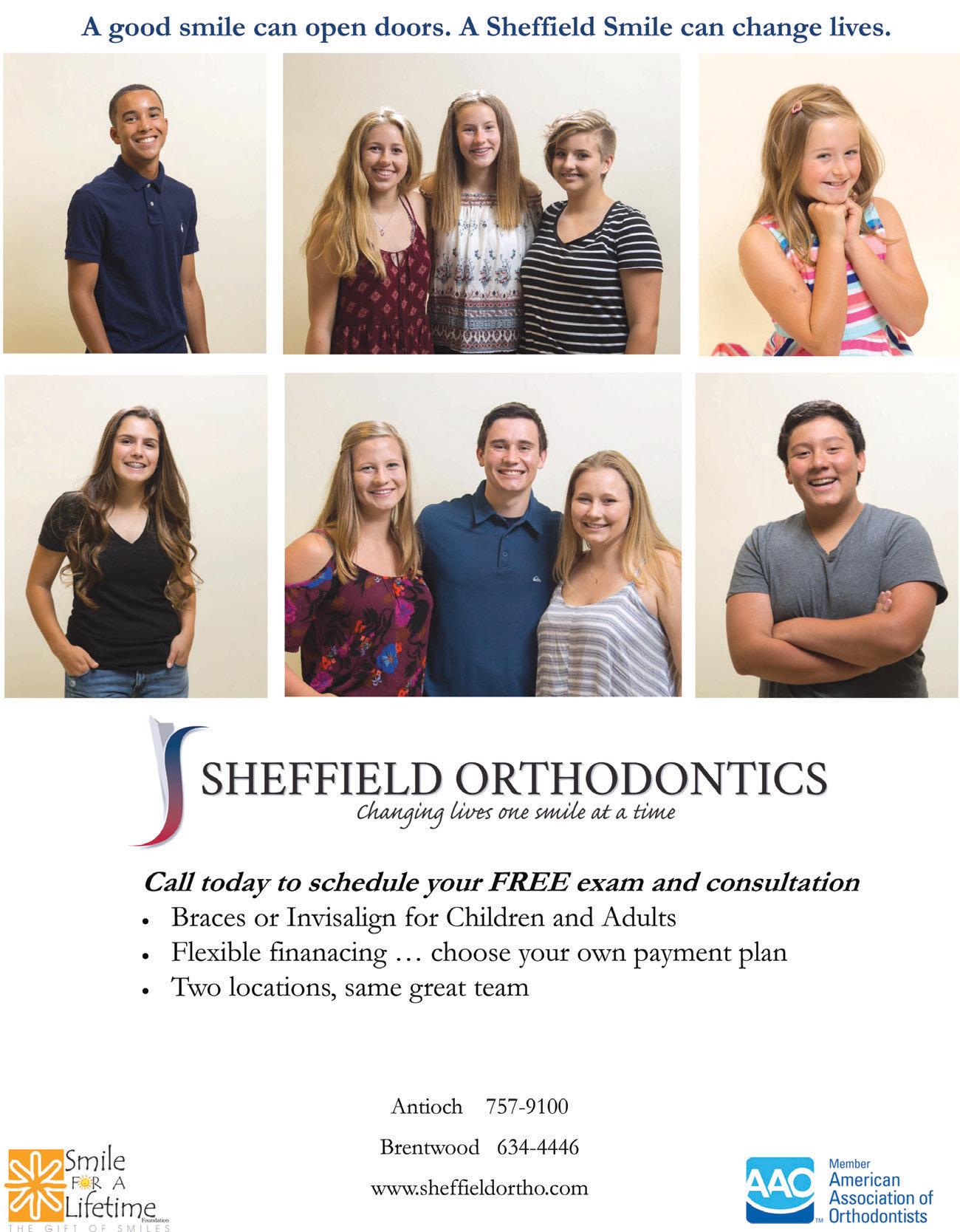
"My family and I are passionate about sharing the gift of hospice. Most people don't know our services are FREE to Seniors that are appropriate for hospice and have Medicare Part-A."
an estimated 9,500 people being diagnosed with skin cancer every day.
The AADA recommends regular skin self-exams, especially those who are at a higher risk of skin cancer. But an official diagnosis, testing and recommendations for treatment should come from a dermatologist.
Dr. Robert E. Beer, founder of Balfour Dermatology, says one of the most important things in maintaining the health of your skin is prevention, “The most important thing that we can do besides sunscreen, is wearing hats, protective clothing and seeking shade,” he said. “Wearing hats and sun-protective clothing is a very important part of safety in the sun. But remember that sun protective clothing has an SPF (Sun Protection Factor) rating that is only good for a certain amount of washes. So if you’ve been wearing the same sun-protective clothing for two years, it’s probably time for some new protective clothes.”
Beer also recommends that everyone, whether they have a fairer or deeper skin tones, should wear sunscreen and do regular body exams. “People of all skin tones should wear sunscreen because people of all skin tones are at risk of skin cancer,” he said. “I think it’s important for everyone to have their skin checked and evaluate what their risks are and what areas to look at. Everyone has birthmarks, it’s important to figure out how often they need to be watched. If skin cancer runs in the family, it’s important to do body exams for yourself and also your relatives.”
Knowing what to look for in these body exams can save lives and being on the look out for irregularities or changes on the person’s skin is important to being diagnosed, according to Beer.
For people who have moles or skin damage and wonder when they should be concerned, they can follow the “ABCD” rule outlined on Balfour Dermatology’s website,
♦ “A” stands for asymmetry: a mole that does not appear to be identical on both halves, up/down or side/side.
♦ “B” is for borders: a mole that has borders that are hazy, red or a lighter color than the skin surrounding the mole, or a wavy/irregular border.
♦ “C” is for color: a mole that has two or more colors. Many people think that bad moles are dark. Color change is the most important factor. Melanomas can be red, pink or colorless. A biopsy is the gold standard in deciding if your mole should be examined more thoroughly.
♦ “D” is for diameter: a mole with a diameter equal to or greater than the diameter of a pencil eraser.
Another aspect of skin cancer prevention and treatment also comes from education. Golden State Dermatology, an independent dermatology network with more than 20 locations in California, provides their patents with skin cancer awareness education and encourages prevention to reduce sun damage and improve skin care. They recommend using sunscreen daily and minimizing exposure to the sun through wearing protective clothing and staying in the shade.
While prevention and diagnosis is important when dealing with skin care, the next step after diagnosis is treatment, experts said. Local dermatology offices like Balfour Dermatology and Golden State Dermatology offer their patients both surgical and non-surgical options in skin cancer treatment and removal.

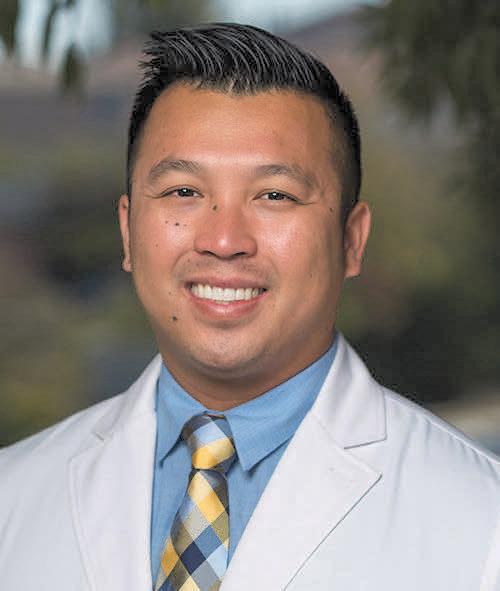
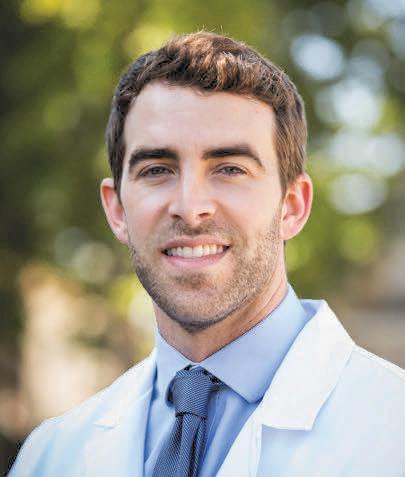
They said they are also one of the few offices that offers MOHS Micrographic Surgery in East County, a specialized surgery that requires dermatology surgeons to complete dermatology residencies and specialized fellowship programs.
Other treatment options include the non-surgical options of Superficial Radiotherapy and Photodynamic Therapy, which focuses on the prevention of skin cancer through the use of a topical medication applied to a targeted area, with a light used to activate the medication. There is also the option of patients using creams that treat precancerous cells and topical gels.
For more information about Balfour Dermatology and other services they offer, visit https://bit.ly/3vPqVUy. Their offices are at 2221 Balfour Road in Brentwood, and their phone number is 925-240-9116

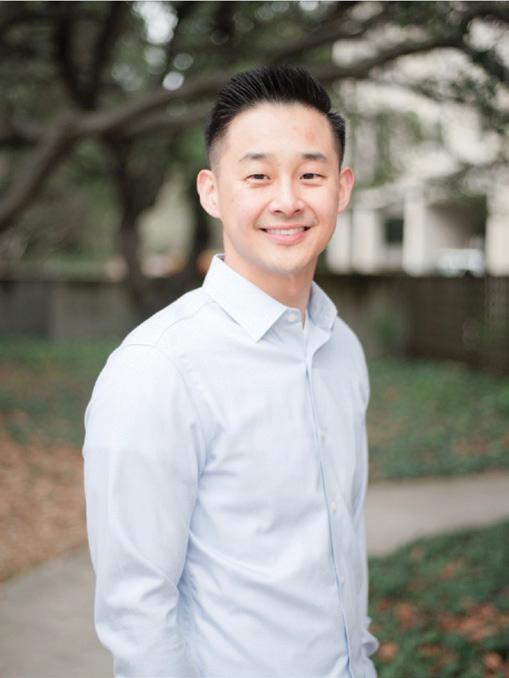
Golden State Dermatology is at 1200 Central Blvd. Unit D, in Brentwood. Their phone number is 925-308-9510 and their website is https://www.goldenstatedermatology.com/brentwood.

outine exercise does a body good. While it may not require a degree from medical school to know that exercise can be a great way to lose weight and reduce risk for various illnesses, there are even more beneficial side effects of regular exercise that might surprise even the most ardent fitness enthusiasts.
♦ Exercise produces positive psychological benefits. WebMD notes that there are several psychological benefits of routine exercise. Those benefits occur because exercise triggers the release of endorphins, which are

hormones that interact with receptors in the brain that reduce a person’s perception of pain. Some additional psychological benefits of exercise include stress reduction and prevention of anxiety and depression.
♦ Exercise can improve your social life.
Many people feel a significant sense of accomplishment by the end of a vigorous workout. Such feelings could grow even more profound when individuals recognize the many lesser known benefits of breaking a sweat.
WebMD also notes that routine exercise can improve self-esteem, which can make it easier for people to connect with others. A 2017 study published in the Journal of Sports Economics concluded that playing sports can help you make new friends for adults and


children alike.

♦ Regular exercise can benefit your career.
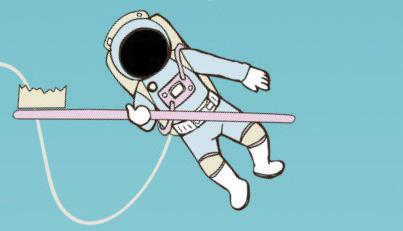



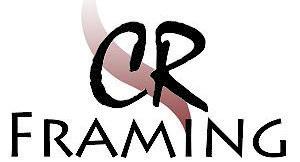
A 2012 study published in the Journal of Labor Research linked regular exercise with an annual wage increase between 6 and 10 percent. Researchers found that moderate exercise yields a positive earnings effect, but individuals who exercised frequently had even higher wage increases.
♦ Exercise can benefit long-term cognitive health. Though the reasons remain unclear, there seems to be a link between regular physical activity and long-term cognitive health. A 2017 study published in the Journal of Alzheimer’s Disease found that regular exercise can benefit cognitive ability, reduce the rate of cognitive aging and lower the risk for certain dementias, including Alzheimer’s disease.
Individuals from all walks of life enjoy grilling and eating grilled foods.
Grilling is a staple of summertime, and over the course of a typical summer the average individual may attend a number of backyard barbecues where the main entrees are staples like grilled hamburgers and hot dogs. Though grillmasters set out to create the perfect grilled foods, nearly everyone who has manned a grill at one point or another has allowed some food to char. Charred foods may appeal to some and not look too appetizing to others. The appearance of charred foods is perhaps one reason why so many people assume they’re unhealthy. Such assumptions are not necessarily false nor are they entirely accurate, which is why anyone can benefit from gaining a greater under-
standing of charred foods.
What is a charred food?
Though there are no criteria to define if a food is charred or not, the term ‘charred foods’ typically refers to foods cooked on a grill or over an open flame that are extra crispy and might have turned dark black during cooking. Vegetables, meat and hot dogs can char somewhat easily on a grill if temperatures are not controlled or if cooks don’t keep a close eye on their grills.
What causes charring?
Charring occurs when foods are exposed to heat for long periods of time. According to Science X, an online network that covers science, technology and medical news, when foods are exposed to heat for a long time on a grill, non-carbon atoms in the food break down, and the result is that distinct black appearance and crispy flavor that people identify with charred foods.
Does consuming charred foods increase cancer risk?
Many people are familiar with the notion that consuming charred foods can increase cancer risk. That notion is not entirely accurate, but it’s not something that’s been made up, either. The American Society of Clinical Oncology (ASCO) notes that charred foods have been linked to cancer in animal studies. That link is due to polycyclic aromatic hydrocarbons (PAHs) and heterocyclic amines (HCAs), which are two chemicals that develop naturally when cooking meat. The fat and juice that drips into a grill’s drip pat when cooking meats produces smoke and flames that contain PAHs that ultimately coat the meat as it cooks. HCAs are naturally produced when cooking meat at high temperatures. The ASCO notes that animal studies have found that rodents fed diets with high doses of PAHs and HCAs developed various types
of cancer, including breast cancer and colon cancer, among others.
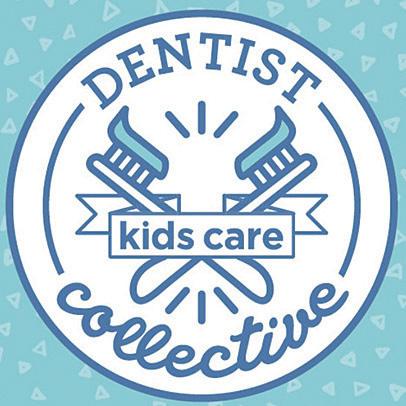
Though studies have found a link between charred foods and cancer risk in animals, the ASCO reports that studies in humans have found no such connection. However, the ASCO warns that this research is ongoing and that any potential link between charred foods and cancer risk could be determined by how individuals’ bodies metabolize PAHs and HCAs. So there may be no right answer to the question asking if there’s a link between charred food consumption and cancer risk in humans.
Charred foods have a unique flavor that some people love and others loathe. Though there’s not yet definitive evidence to suggest charred foods cause cancer, individuals are still urged to exercise caution and avoid overconsumption of foods with a crispy, charred exterior.
It’s the perfect season for a little bit of tree climbing, and Ben had to show his family how it’s done.


Are you looking to fix up your home? Rose & Sons will provide professional glass services, including frameless shower door installment, glass replacement and glass tabletop repair at a reasonable price.










Since 1979, the Rose & Sons family has been providing fair, friendly and professional service to the East Bay Area. Their office in downtown Brentwood, at 230 Chestnut St., is open from 9 a.m. to 5 p.m., Monday through Friday, and 9 a.m. to noon on Saturdays.







